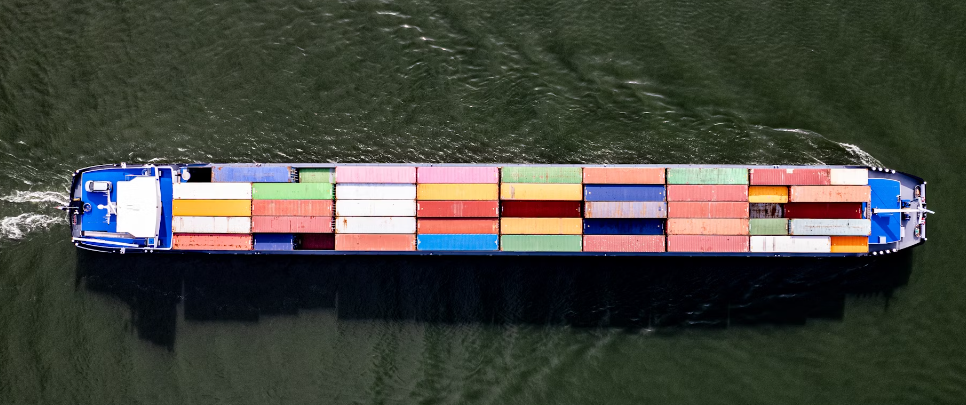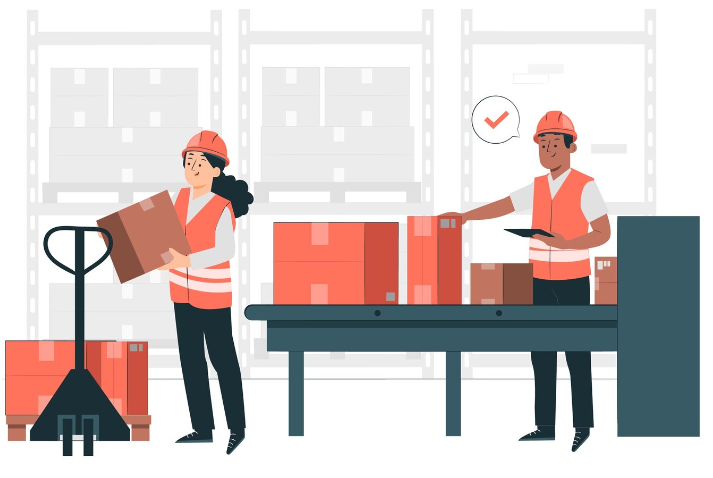Table of Contents
Shipping from China to Mexico: A Comprehensive Guide
Time: Oct 31,2024 Author: SFC Source: www.sendfromchina.com
Mexico is a rapidly growing economy, and its proximity to the United States makes it a strategic hub for international trade. As the second-largest economy in Latin America, Mexico has become a significant player in the global market. Its trade agreements with various countries, such as the United States-Mexico-Canada Agreement (USMCA), make it an attractive destination for importing goods.
For businesses looking to ship products from China to Mexico, understanding the economic landscape is crucial. Mexico’s economy relies heavily on trade, and importing products is a major contributor to its GDP. With a growing middle class and increasing demand for consumer goods, Mexico presents a lucrative opportunity for businesses seeking to expand their market reach.
In this guide, we’ll explore the various shipping options, customs regulations, taxes, and fulfillment strategies that can make your shipping process seamless and cost-effective, helping you succeed in this emerging market.

1. Basic Introduction to Mexico
Mocheng, the capital and largest city of Mexico, stands as the country’s economic, political, cultural, military, and religious epicenter. This bustling metropolis, home to around 21 million people, is located in the valley of the south-central plateau, an area surrounded by mountains reminiscent of Chengdu in China’s Sichuan Basin. Spanning 1,500 square kilometers, Mocheng sits at an impressive 2,240 meters above sea level, where the thinner air affects daily life in unique ways. For instance, the lower boiling point of water—93 degrees Celsius—can pose challenges for cooking, making it difficult to prepare certain traditional dishes, like cold skin noodles.
As one of the highest cities of its size globally, Mocheng’s altitude introduces hypoxia for some, though most residents adapt well. Altitude tolerance varies, with some people unaffected until reaching elevations of 3,000 to 4,000 meters, depending on individual fitness and respiratory adaptability.
In addition to its breathtaking landscape, Mexico is famously the birthplace of chili peppers, home to some of the world’s hottest varieties. Mexican cuisine reflects this spicy heritage, as many people incorporate intense heat into their everyday diet.
The city’s significance on the world stage was highlighted during its successful hosting of the Summer Olympics in 1968, further establishing Mocheng as a dynamic hub that balances its historic legacy with modern growth. Today, with roughly one-fifth of Mexico’s population residing in Mocheng and the surrounding valley, the city continues to thrive as a heart of Mexican culture and international influence.
2. E-commerce Environment of Mexico

Mexico, the 12th largest economy globally, holds a prominent position as the second largest e-commerce market in Latin America, following Brazil. In 2020, online retail sales reached an impressive $33.7 billion, with more than half (54%) of Mexicans having experienced online shopping. With a young average age of 27, Mexico has significant potential for growth in the digital marketplace.
Currently, e-commerce accounts for only 5.5% of total retail sales, indicating substantial room for expansion as internet and smartphone penetration rise. This growing digital infrastructure positions Mexico’s e-commerce sector for rapid development, supported by an emerging middle class and increased digital connectivity.
Although Mexico’s GDP per capita ranks 64th globally, it stands above the world average, reflecting the country’s balanced economic growth. With continued investment in technology and digital access, Mexico's e-commerce sector is poised to become an even more vital component of its economy in the coming years.
The Main Ecommerce Platforms in Mexico
| Platform | Founded Year | When Came into Mexico | Volumes/day | Self Fulfillment | Others |
| Mercado Libre | 1999 | 1999 | 300,000 to 400,000 | Yes | The largest e-commerce platform in Mexico, covering a wide range of businesses, including e-commerce, house rental and sale, car rental and sale, resale of second-hand goods, online payment and so on. |
| Amazon | 1994 | 2015 | 200,000 to 300,000 | Yes | The second largest e-commerce platform in Mexico, the order volume is slightly worse than that of Mercado. |
| Walmart | 1962 | 2021 | 150,000 to 200,000 | Yes | Mexico's large number of offline retailers, mainly supermarket, fresh, daily necessities, during the epidemic began to open e-commerce sellers to further expand the category. |
| Temu | 2022 | 2023 | 200,000 to 250,000 | No | The full category of e-commerce platform entered the Mexican market in 2023, and in less than 1 year's time, the order is beyond Shein, AliExpress and Shopee, and it is the first place in the APP store downloads. |
| Shein | 2008 | 2016 | 80,000 to 120,000 | No | Previously, it only sold clothes and fashion categories, but 2023 has opened the full range of goods and began to attract investment from local Mexican merchants. |
| AliExpress | 1995 | 2016 | 50,000 to 60,000 | No | Full category e-commerce platform. |
3. Main Shipping Methods from China to Mexico

When shipping goods from China to Mexico, selecting the most suitable shipping method is key to balancing cost, speed, and efficiency. The three primary methods include air freight, sea freight, and express shipping.
Air Freight from China to Mexico
Air freight is the fastest shipping method, ideal for businesses needing quick delivery. It usually takes 5-7 days for air shipments to reach Mexico from China. While it is the quickest option, it is also the most expensive, making it suitable for high-value or time-sensitive goods.
Advantages: Fast delivery, reliable schedules, and suitable for perishable or high-value products.
Disadvantages: Higher cost compared to sea freight and weight restrictions.
Sea Freight from China to Mexico
Sea freight is the most economical option, commonly used for bulk shipments. It offers flexibility in transporting a wide range of products, from machinery to consumer goods. However, transit times can range from 20-40 days, depending on the port of departure and arrival.
Advantages: Cost-effective, ideal for large and bulky shipments, and suitable for various types of cargo.
Disadvantages: Longer transit times and potential delays due to port congestion or customs clearance.
Express Shipping from China to Mexico
Express shipping through couriers like DHL, FedEx, and UPS is perfect for small parcels or urgent deliveries. It offers door-to-door shipping service, with transit times typically ranging from 3-5 days. The method is often chosen for e-commerce businesses that need to deliver products quickly to customers.
Advantages: Fastest delivery time, door-to-door service, and efficient customs clearance.
Disadvantages: High cost, not suitable for large or heavy shipments.
4. Tariff and Tax Pocily for Shipping from China to Mexico

Industrial manufacturing is a cornerstone of Mexico's economy, contributing 22% of the total GDP, with the automobile sector playing an especially pivotal role. Mexico handles over 90% of North America's car assembly, giving the automotive industry a critical, far-reaching influence on the national economy. In contrast, light industry remains relatively underdeveloped, and domestic production in this sector is limited. The gap creates substantial demand for imported light industrial products, a need largely met by e-commerce channels.
For e-commerce businesses, this reliance on imports represents a growth opportunity, especially in categories underserved by local manufacturing. Mexico’s tax exemption policies on small e-commerce packages, provided declarations remain legally compliant, are unlikely to face political resistance due to their role in supporting the country’s light industrial needs. The favorable import environment positions e-commerce as an efficient means to supply the Mexican market with essential goods while complementing its industrial economy.
Mexico's customs processes are notably more complex than those in the U.S. or Europe, influenced by corruption within some government offices and issues related to drug trafficking. To address these challenges, Mexico is gradually transferring customs responsibilities to the military, aiming to enhance transparency and security. In the e-commerce sector, T1 small package customs clearance has become the most efficient, convenient, and reliable option, particularly favored for its streamlined procedures.
The T1 customs process allows for the simplified clearance of imports declared as personal items, provided the invoice amount does not exceed $1,000 USD, with items under $50 USD enjoying tax-free status. This process requires courier companies to work closely with the transportation bureau, presenting express licenses issued by customs clearance agents to expedite passage.
While some packages face issues like undervaluation, T1 small package clearance is considered more stable and legitimate than the “gray clearance” channels typically used in general trade. For e-commerce businesses, this pathway provides a cleaner, more efficient solution to navigating Mexico's customs complexities, ensuring smoother import operations.
| Model | Declared Amount | VAT | Tariff |
| T1 | <50USD | 0 | 0 |
| T1 | 50≤X<300USD | 19% | 0 |
| T1 | 300≤X<1,000USD | 19% | 0 (A commercial invoice is required) |
| A1 | ≥10,000USD | 19% | Pay duties according to the response category |
Tariff Rates for Some Categories
| Category | Tariff Rate |
| Tobacco and alcohol products | 100% |
| Jewellery and Precious metals | 30% |
| Automobile and parts | 20% |
| Clothing and accessories, footwear, electronics, household appliances, furniture, toys, cosmetics, personal care products, food and beverage, etc | 16% |
| Sporting goods | 10% |
| Books and stationery | 0% |
| Medicines and medical supplies | 0% |
| Art and Collections | 0% |
- The above rates are for reference only and the actual rates may vary.
- Mexican customs may impose additional taxes on certain goods, such as value added tax (VAT).
- Mexican e-commerce platforms may charge additional service fees or handling charges.
Declaration Quantity Limit
In general, items that, by their quantity or value, are evidently intended for commercial purposes rather than personal use are ineligible for customs clearance as express material. The following examples illustrate this, though the list is not exhaustive.
| Products | Products Limit Per Package |
| Shoes/boots,sport shoes Toys Home Furniture Clothes/ accessories/textile items Disks, cassettes or recorded Cd's |
10 pieces |
| Tires for cars,motorcycles,trucks or bicycles Computer equipment |
5 pieces (No repeats) |
| Hunting Trophies Home Appliances |
3 pieces (No repeats) |
| Electronic toys Tools |
2 pieces |
| Athletic Gear Sport equipment Bicycle |
1 pieces |
5. Main Fulfillment Models of Shipping from China to Mexico

When shipping from China to Mexico, selecting the right fulfillment model is essential for optimizing delivery times, cost, and overall customer satisfaction. Here, we’ll cover the most common fulfillment models for sellers expanding into the Mexican market.
FBA
Fulfillment by Amazon (FBA) is a popular choice for sellers targeting Mexico due to Amazon's extensive logistics network and established customer trust. FBA simplifies the logistics process by allowing sellers to ship their products directly to Amazon’s fulfillment centers, where Amazon manages storage, packaging, shipping, and even customer service for these items.
Self-Fulfillment
Self-fulfillment gives businesses full control over the shipping process. Sellers store and manage their own inventory, either at a facility in China or Mexico, and handle packaging and shipping directly to the customer.
Third-party Overseas Warehouse
Using a third-party overseas warehouse is an increasingly popular option for sellers looking to streamline their fulfillment operations in Mexico without relying on Amazon's FBA or managing self-fulfillment entirely. A third-party warehouse, often run by a logistics provider, offers warehousing, order fulfillment, and shipping services, creating a centralized logistics solution.
6. Advantages of Self-fulfillment

Reduced FBA Fees: Shipping directly to Mexico bypasses Amazon’s FBA service fees (for storage, fulfillment, and other handling fees), which can be substantial. You can avoid these by handling fulfillment independently.
Bulk Shipping Savings: Shipping in bulk directly from China allows for cost efficiencies, as it often reduces per-unit shipping costs compared to frequent, smaller shipments to FBA centers.
Customizable Shipping Options: Direct shipping allows flexibility in choosing sea or air freight, enabling you to tailor costs based on urgency and budget.
Flexible Warehousing Solutions: By avoiding FBA, you can use third-party logistics (3PL) providers or your own facilities in Mexico, providing flexibility to store, manage, and distribute inventory as demand dictates.
Customizable Inventory Management: With direct shipping, you control inventory handling, restocking, and order fulfillment. It can improve responsiveness to fluctuations in demand and reduce risks of stockouts or overstocking.
Direct-to-Consumer Options: Shipping directly allows more tailored shipping methods that could lead to faster delivery times within Mexico, especially for time-sensitive products.
7. Get Started with SFC Service
SFC stands at the forefront of order fulfillment with cutting-edge facilities in Shenzhen, China. Utilizing sophisticated software, we specialize in seamless and trustworthy fulfillment solutions for ecommerce, dropshipping, and crowdfunding platforms. At SFC, we are dedicated to accelerating your business growth through secure warehousing, efficient processing, customizable packaging options, and adaptable shipping strategies while saving you time and money.
Whether you have or do not have a fulfillment partner, particularly your products manufactured in China, you should consider SFC. Click the button below and get help from SFC logistics experts.
What Makes SFC Special
Over 17 Years of 3PL and Order Fulfillment ExperienceAll-in-one Tracking Number
Popular Platform API Integration
30 Days of Free Storage
No Hidden Fee
Custom Packaging
Worldwide shipping solutions
Value-added Services
8. FAQs
Q1: What is the most cost-effective way to ship from China to Mexico?
The most cost-effective method typically involves sea freight, particularly for larger shipments that are not time-sensitive.Q2: How long does it take to ship from China to Mexico via sea freight?
Sea freight from China to Mexico generally takes between 15 to 35 days, depending on factors such as port congestion and customs processing.Q3: Are there customs fees when shipping from China to Mexico?
Yes, customs fees, including VAT and import duties, apply to shipments. The specific rates depend on product category and value.Q4: What are the benefits of using SFC for shipping to Mexico?
SFC offers flexible shipping options, competitive pricing, and end-to-end logistics solutions tailored to the needs of businesses shipping from China to Mexico.Q5: Can I use Amazon FBA for selling in Mexico?
Yes, Amazon FBA operates in Mexico, allowing sellers to reach Amazon’s customer base while leveraging Amazon’s fulfillment infrastructure. Post Views:26
Post Views:26
Copyright statement: The copyright of this article belongs to the original author. Please indicate the source for reprinting.
Previous Post
Next Post
TAGS
Hot Research
Get a Custom China Fulfillment Solution with FREE Storage for 30 Days
 Want to know about our services, fees or receive a custom quote?
Want to know about our services, fees or receive a custom quote?
 Please fill out the form on the right and we will get back to you within a business day.
Please fill out the form on the right and we will get back to you within a business day.
 The more information you provide, the better our initial response
will be.
The more information you provide, the better our initial response
will be.






 TAGS:
TAGS: